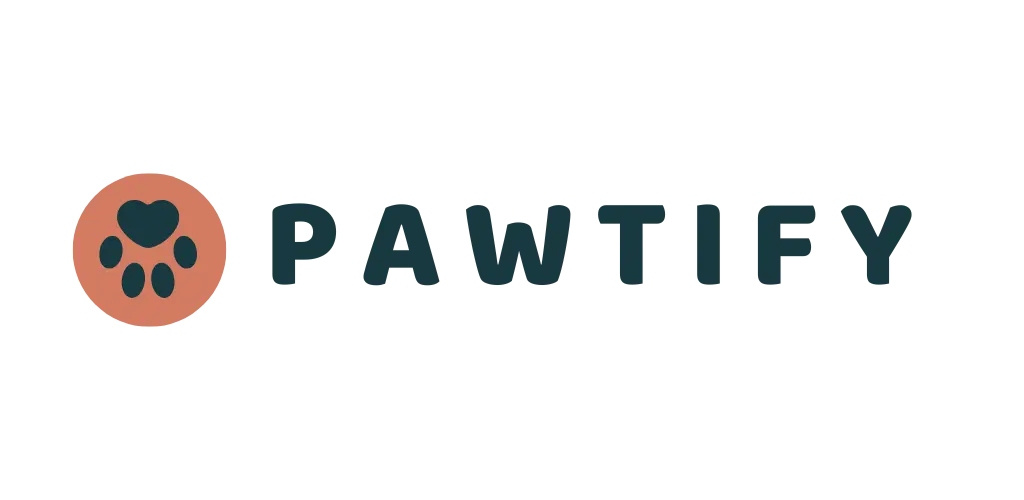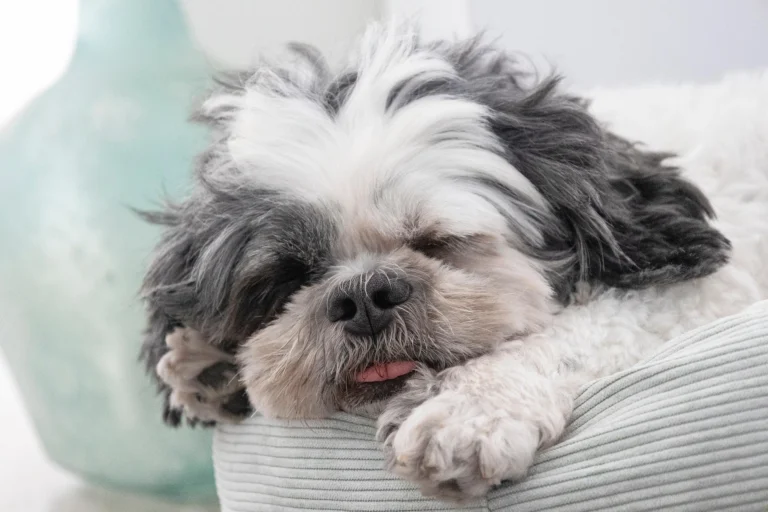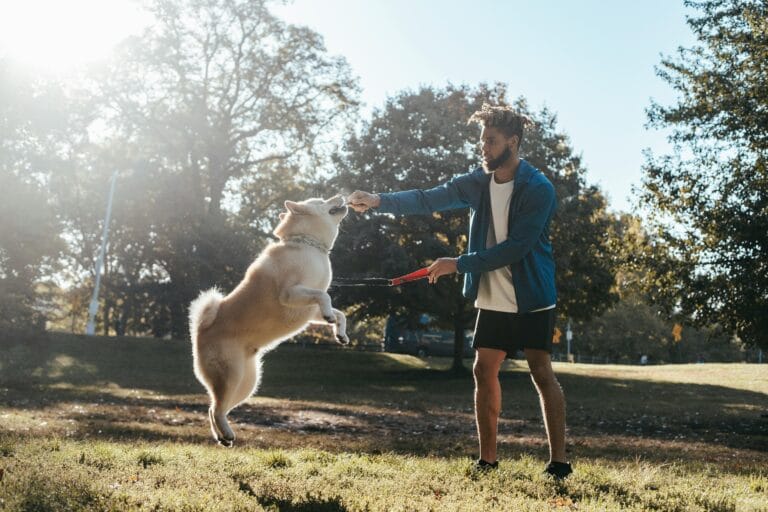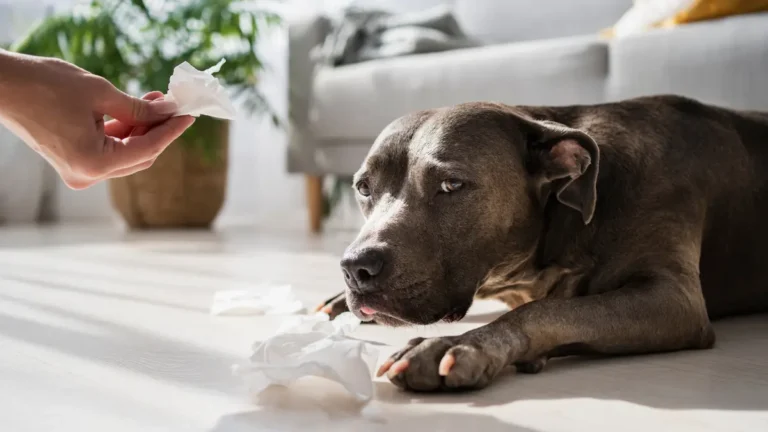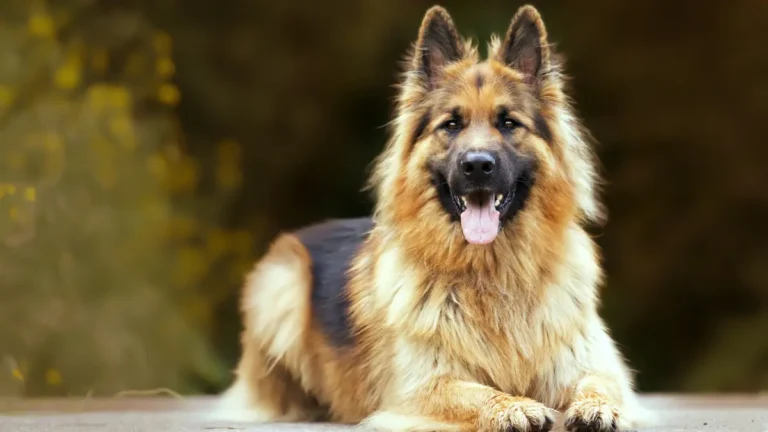Table of Contents
As a proud owner of a Bichon Frise puppy, you may have observed that sometimes your furry friend doesn’t eat as much as usual. While this can be concerning, there are often simple explanations. It’s important to identify why your Bichon Frise puppy might be eating less and whether it’s something that requires attention. Let’s explore the top reasons, solutions, and when to consult your vet.
Understanding Normal Eating Habits in a Bichon Frise Puppy
Typically, Bichon Frise puppies should be fed three to four small meals a day. They need a balanced diet to support their rapid growth and active lifestyle. However, not every Bichon Frise puppy is the same—there can be slight variations in how much food they require based on their individual needs. When you’re looking for a Bichon Frise for sale, it’s essential to ask about their current feeding routine so you can maintain consistency.
Why a Bichon Frise Puppy May Eat Less Than Usual
It’s normal for puppies to have fluctuations in appetite. However, if your Frise puppy is consistently eating less over time, it’s worth investigating. Here’s a closer look at some common reasons behind changes in appetite.
1. Stress and Anxiety
If your Bichon Frise puppy is experiencing stress, they might lose interest in food. Changes in environment, such as moving to a new home or adjusting to a different routine, can lead to anxiety. Puppies are sensitive creatures, and emotional stress often impacts their eating habits.
For instance, after adopting a puppy from a breeder or after bringing home a Bichon Frise for sale, your puppy might take some time to adjust. During this period, their appetite may drop as they acclimate to their new surroundings.
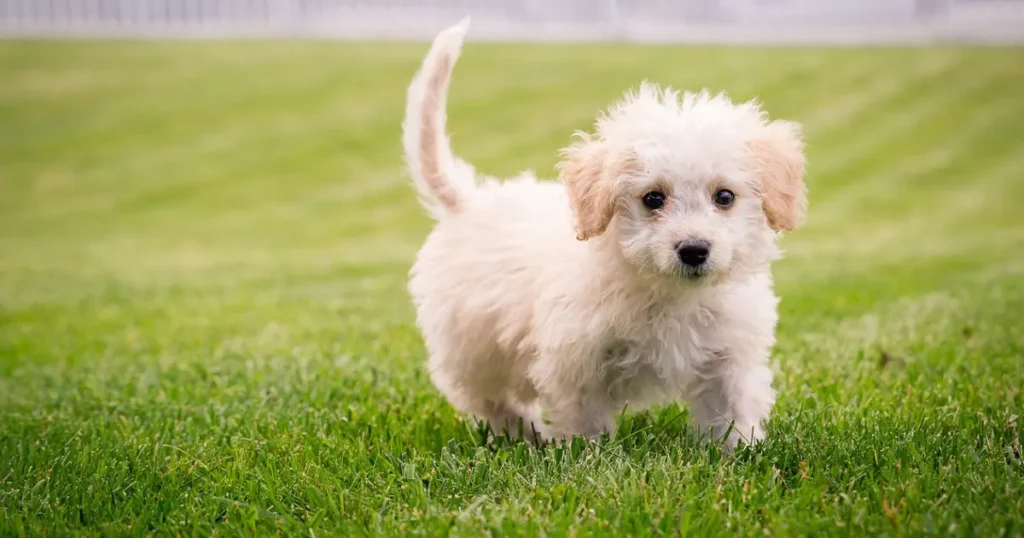
2. Teething Discomfort
Teething can be quite uncomfortable for puppies. As their baby teeth begin to fall out and adult teeth grow in, they may experience gum pain. This could cause your Frise puppy to avoid eating hard foods. Offering soft, easily chewable options can help maintain their nutrition during this phase.
3. Dietary Changes
Sudden changes in diet can be difficult for puppies to adjust to. If you’ve recently changed your puppy’s food, this could explain the reduced appetite. A gradual transition over a week is ideal to prevent stomach upset and ensure that your Bichon Frise puppy adapts to the new food.
Introducing new food too quickly can cause digestive issues and temporary refusal to eat. To avoid this, always mix a small portion of the new food with their current diet and slowly increase the proportion over time.
4. Illness or Infection
One of the more serious reasons why your Bichon Frise puppy might eat less could be an underlying illness or infection. Common conditions like gastrointestinal infections or even respiratory issues can impact their appetite. If you notice your puppy showing additional symptoms such as lethargy, vomiting, or diarrhea, it’s time to visit the vet.
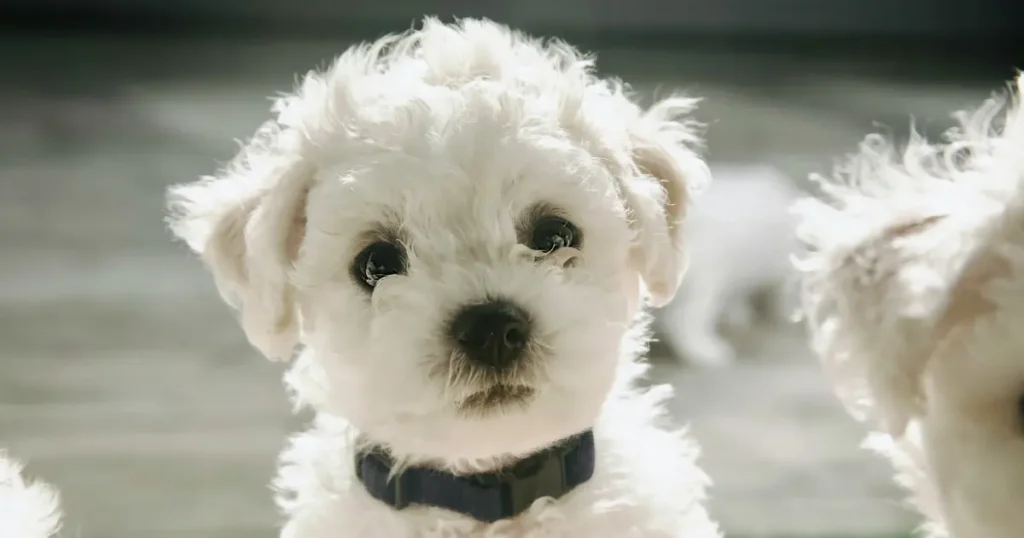
5. Side Effects from Vaccinations or Medications
After vaccinations or starting a new medication, it’s common for a Bichon puppy to temporarily lose interest in food. This side effect usually fades within a day or two. However, if your puppy continues to eat less for an extended period, consult your vet to rule out any potential issues.
6. Overfeeding and Snacking
It’s possible that your Bichon puppy isn’t actually hungry because they’ve been overfed. Giving too many treats or large portions can fill them up, causing them to skip meals. Monitor how much you’re feeding and ensure the portion sizes are appropriate for their age and weight.
While feeding a Bichon Frise might seem straightforward, portion control is crucial. Avoid offering too many extras, as this can spoil their regular meals.
7. Dental Problems
Dental issues can lead to discomfort while eating. Puppies, like Bichon Frise, can experience plaque buildup or gum irritation, making it painful to chew their food. If you notice bad breath or your puppy seems reluctant to chew, it’s worth checking their teeth and gums. Regular dental care can prevent future problems and ensure your Bichon puppy has healthy eating habits.
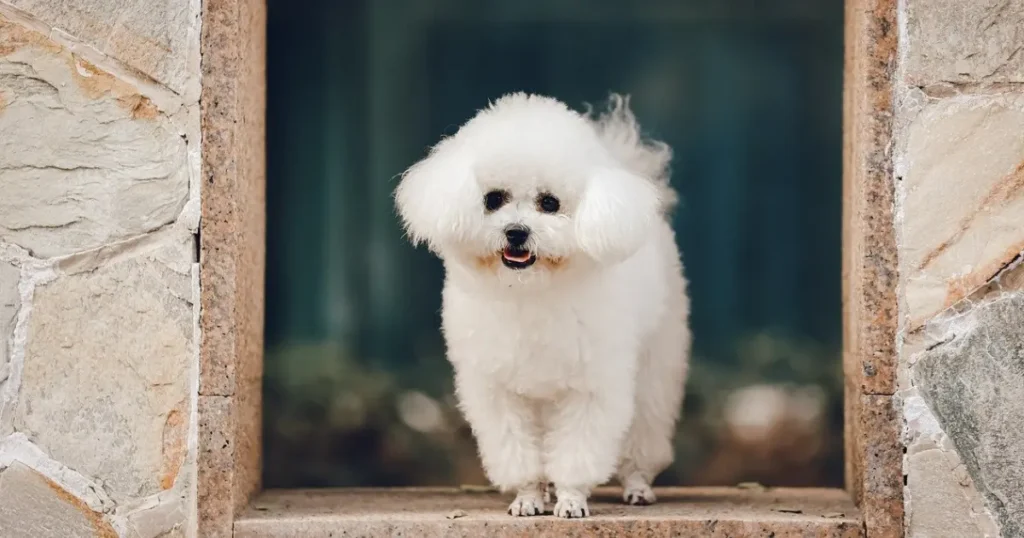
8. Boredom with Food
Sometimes puppies simply get bored with their food. If you’re feeding the same meal every day, your Bichon Frise puppy might lose interest. Try rotating between different high-quality puppy foods to keep them engaged with their meals. Make sure any changes are introduced gradually to avoid upsetting their stomach.
9. Digestive Issues
Upset stomachs can lead to temporary refusal to eat. If your Bichon puppy has been vomiting or has diarrhea, they might not feel like eating until their stomach settles. In such cases, offering bland food like boiled chicken and rice might encourage them to start eating again. Always consult your vet if digestive problems persist.
10. Growth Spurts and Fluctuations in Appetite
Puppies go through various growth phases, and their appetite may fluctuate during these times. Your Bichon Frise puppy might experience periods where they need more food and times when they naturally eat less. These fluctuations are usually temporary and should not last long. If the reduced appetite continues, consider consulting your vet to rule out underlying issues.
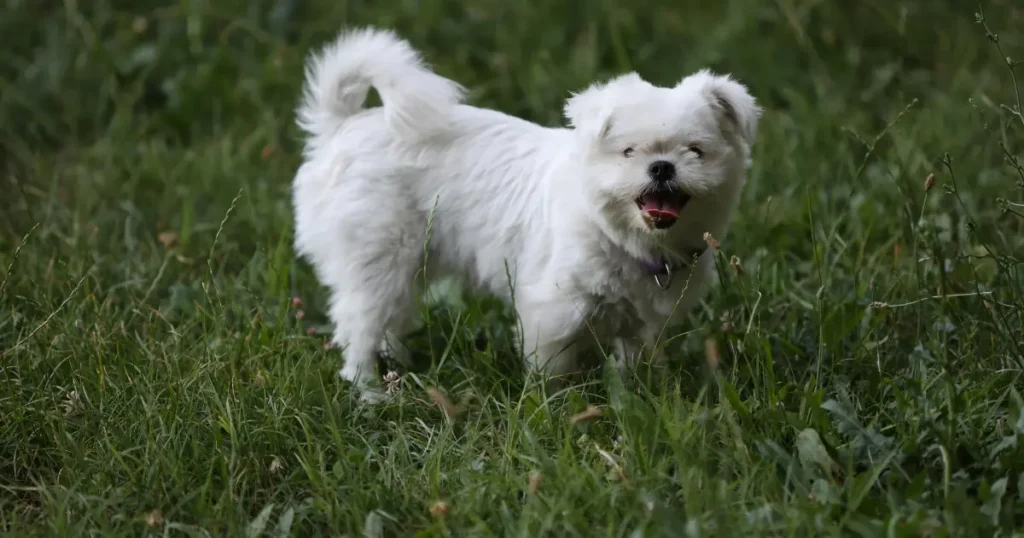
How to Encourage Your Bichon Frise Puppy to Eat More
If your puppy’s reduced appetite is worrying you, there are several ways to encourage them to eat:
- Serve Smaller Portions Frequently: Offering smaller meals more often can stimulate their appetite.
- Heat the Food Slightly: Warming their food can enhance the aroma, making it more appealing to your puppy.
- Mix Wet and Dry Food: Combining dry kibble with a bit of wet food can add texture and flavor to their meal.
- Hand-Feed Your Puppy: Sometimes hand-feeding your puppy can make them feel more comfortable and encouraged to eat.
These tips can be especially helpful if you notice your puppy’s appetite fluctuating during key growth stages.
When Should You Worry About Your Bichon Frise Puppy’s Eating Habits?
While it’s normal for puppies to occasionally eat less, you should be concerned if:
- There is significant weight loss
- Your puppy seems lethargic or weak
- They refuse food for more than 24 hours
- There is persistent vomiting or diarrhea
If any of these symptoms occur, consult your vet immediately.
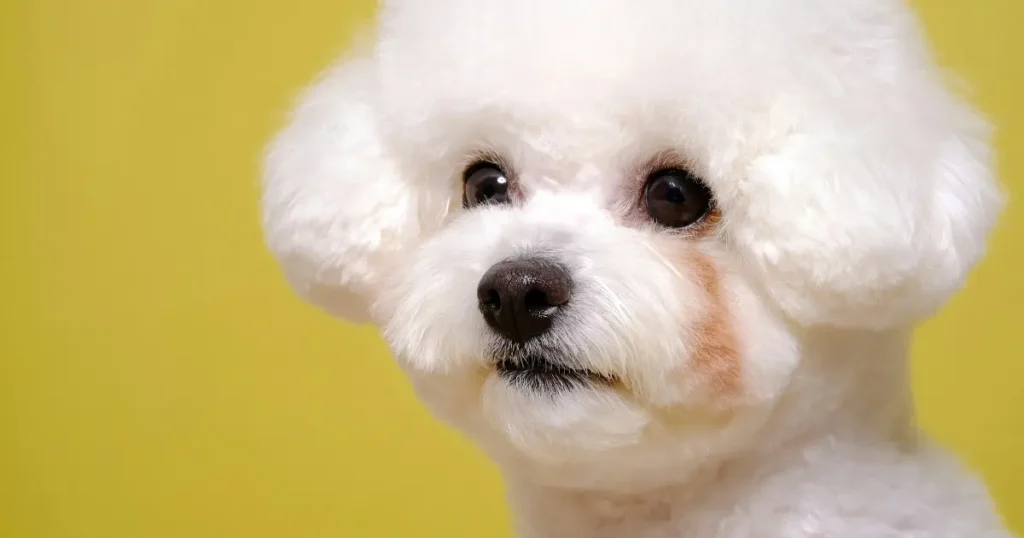
The Lifespan and Long-Term Health of a Bichon Frise
A Bichon Frise life expectancy is generally between 12 and 15 years. Ensuring that your puppy gets proper nutrition early on will set the foundation for a long, healthy life. Regular vet checkups, a balanced diet, and proper care can help your Bichon Frise live a fulfilling life.
Conclusion
If your Bichon Frise puppy is eating less than usual, it’s essential to identify the underlying cause. Most of the time, changes in appetite are temporary and linked to growth stages, teething, or minor digestive issues. However, if your puppy’s reduced appetite continues, it’s important to consult a vet to ensure they stay healthy. With the right care and attention, your puppy will soon return to their playful, energetic self, enjoying their meals again. For more tips on raising happy puppies, check out this guide on Golden Retrievers.
FAQs
1. How often should I feed my Bichon Frise puppy?
A Bichon Frise puppy should typically be fed three to four small meals a day. This helps support their growing bodies.
2. Is it normal for a Bichon Frise puppy to eat less during teething?
Yes, teething can cause gum discomfort, leading to a decrease in appetite. Offering softer food can help them continue eating.
3. Can stress affect my Bichon Frise puppy’s appetite?
Absolutely. Stress from moving, a new environment, or separation anxiety can cause a puppy to eat less.
4. What should I do if my Bichon Frise puppy refuses to eat for more than 24 hours?
If your puppy refuses food for more than a day or shows other concerning symptoms, consult your vet immediately.
5. How long do Bichon Frises live?
The average Bichon Frise life expectancy is 12 to 15 years, so with proper care, your puppy has the potential for a long, healthy life.
